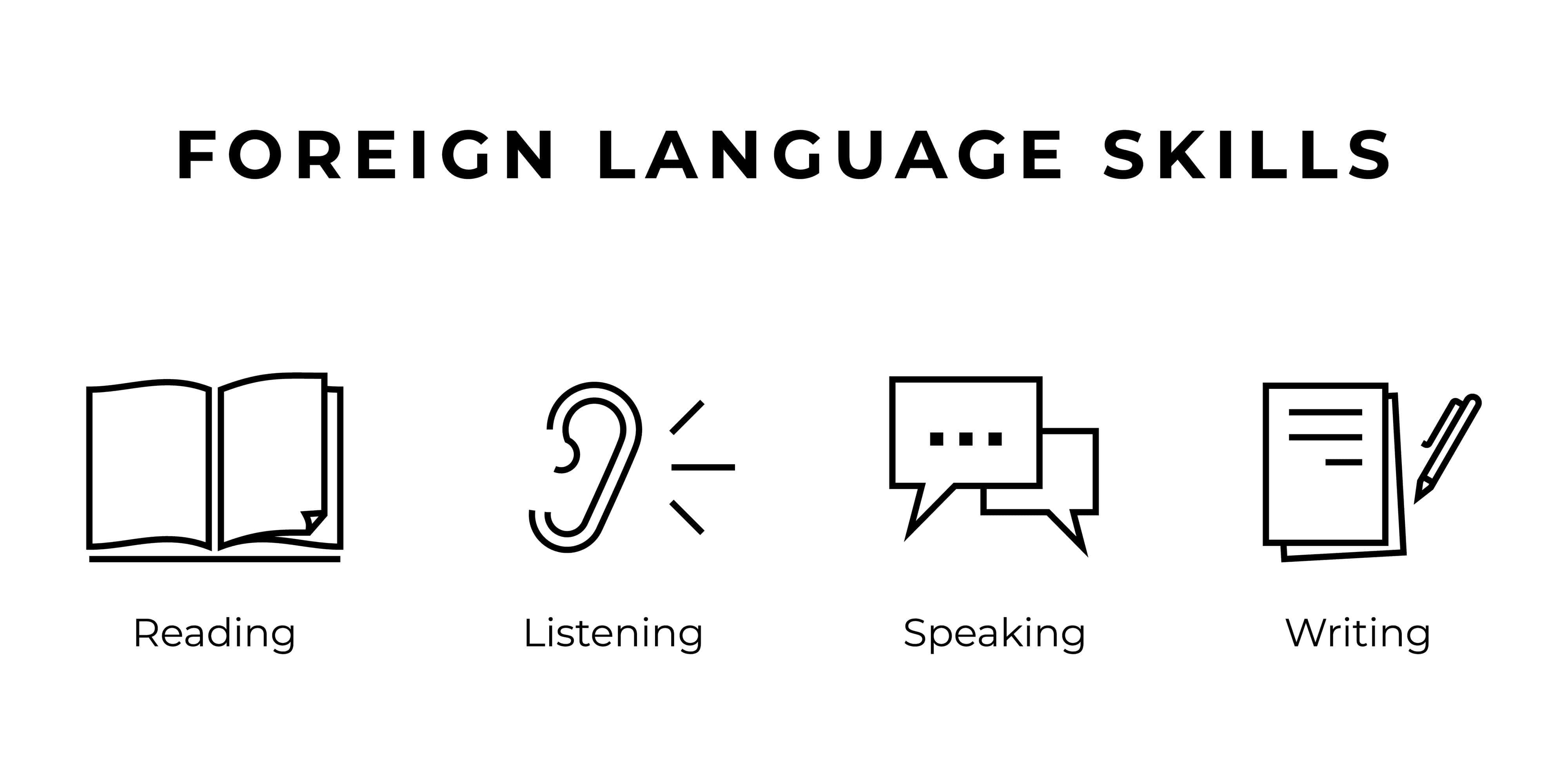How to Improve your Language Skills Without Attending School
Tips and Advice
5 mins read
Share

Updated at: 25 November, 2025
Published at: 13 September, 2021
By Guest Contributor
How to Improve your Language Skills Without Attending School
Tips and Advice
5 mins read

Updated at: 25 November, 2025
Published at: 13 September, 2021
By Guest Contributor
Share
In today’s world of constantly advanced technology and opportunities, learning a new language seems to be a piece of cake. You can choose any school, take any online course, or work with a tutor. Sign up, pay, and go ahead! Yet, if spending money on mastering your language skills is not an option, here are some tips on how to do that on your own.
Start with the Right Mindset
Having the right mindset is the key to successful language learning. Studying languages is time-consuming and requires energy, so make sure you have good reasons to take it on. The easiest reason to start with a necessity like if, for example, you’re about to move to another country speaking a different language. Another reason could be the need to broaden professional horizons. However, what if learning and practicing a new language is just the voice of desire? Then it can be more complicated to keep the fire of interest burning. To do so, keep yourself eager to learn by getting acquainted with the history, culture of the country, and people living there. Imagine how exciting your experience of traveling to this place will be and start planning for your trip! List things that inspire you to learn the language, keep them in front of you, and don’t forget to update.
Let go of your pride
There are many reasons why we give up on our dreams of speaking a foreign language. Lack of time and laziness may be the most common ones but the list goes on. There’s also the fact that the older we get, the more insecure we feel about trying something new. People don’t like to look or sound ignorant, they may get touchy about remarks. At the end of the day, studying something new is never easy. To keep yourself motivated, you have to overcome fears and make preparations.
If the fear of failure paralyzes you, look at the process from a new perspective. It’s neither a winner-take-all competition nor a compulsory university course boring you to tears it is a magnificent journey. Accept remarks and corrections with gratitude. Ask questions, even silly ones. Stay open-minded and don’t limit yourself to approaches you already use and feel comfortable with. Curiosity is a fuel that can bring you far.
Search For Relevant Learning Materials
The complexity of this task largely depends on the language you’re mastering. For instance, the Internet is full of apps, English books and videos. There are also many free educational resources for Spanish, German, or French. However, it’s not always the case with other rarer languages. If you can’t find the necessary handbooks for the chosen language, don’t give up! Visit different forums like Quora, Reddit, Linguaholic, UniLang, etc. Ask friends and on social media groups. Go to the libraries and see what they can offer you. Reach out to native speakers and ask for their advice. Materials and resources are the primary things you pay for at language schools. To find those that work best for you, try out different options.

Create A Curriculum
Have you heard about international language tests? They assess a person's language proficiency in a secondary language. These tests are standardized and they are all about things the learner should know to interact with native speakers. The tests range your fluency from A1 to C2 levels. Taking them costs money, yet, the list of must-know things for each level is always free. You can find it on the website of the organization in charge of the test. Voilà! You now have a well-defined plan on how to proceed with learning.
Don’t Overestimate Your Capacities
You’re unlikely to spend several hours a day studying even if the new foreign language inspires you a lot. To avoid burnout, dive into the process step by step and set realistic goals. It’s always better to learn a little yet every day. Otherwise, your brain won’t be able to memorize new grammar or vocabulary.
An aspiration to achieve all goals in the world within a week will ruin the whole studying process. Striving for better results is ok, but destructive perfectionism is not. Anything has room for improvement, the most important step is to acknowledge your mistakes and move on. People overwhelmed with details and doubts don’t see the forest for the trees.
Play with Your Brain
It’s equally hard to start learning a new language and keep mastering it once you’ve achieved a certain level. The more you explore, the slower the progress seems to be. If the person focuses solely on results, they might quickly lose motivation. To avoid this mistake, hack your consciousness. Instead of suffering from the need to learn 50 new words during the week, split the list and memorize 10 each day. 10 words a day - 50 per week, and 2600 within a year. Sounds impressive, doesn’t it?!
Create a system of rewards for your victories. Nailing grammar constructions or writing a one-page essay without mistakes are great achievements. Learn the words in context and create as many crazy stories using them as possible. These weird associations will be cemented in your brain forever. Repeat things to solidify the gained knowledge and look back at how much you’ve already progressed. To sum up, trigger your brain’s pleasure system and connect it to the learning process.
Get to Know More About Culture
Another language-learning method you can use is to get acquainted with music in the chosen language. Listen to their songs and try to distinguish words and phrases. Follow expat-bloggers on social media, some of them have a lot of educational content on their channels. On top of that, they can explain things in a way that is clear and easy to process for you. Although it’s good to dive into the world of native speakers, let’s admit, it feels very stressful at first.
The next step could be following magazines and newspapers on social media. Yes, you got me right. They usually post crucial but brief news about the latest events in the country or in the industry. Thus, you get to know what is going on there. Furthermore, you learn up-to-date vocabulary and how to sound like a native speaker.
Learning a foreign language on your own is a magnificent journey. Yet, its success largely depends on your willpower and creativity. Decide what you would like to do with such a valuable asset as knowing another language.
Setting a clear goal helps move along the path. Don’t let the fear of mistakes and awkward situations take over you. Set a learning plan made by professionals to navigate you through the process and help you stay interested and motivated. Find what amuses you and connect it to the learning process. Turn social media into a learning resource. Follow bloggers with educational content. Keep abreast of the latest news of the country. Don’t get fixed on results, concentrate on the process. They will inevitably increase as you proceed with learning.
Tips and Advice
By Guest Contributor
Share
Tips and Advice
Updated at:
Published at:
By Guest Contributor
Share


